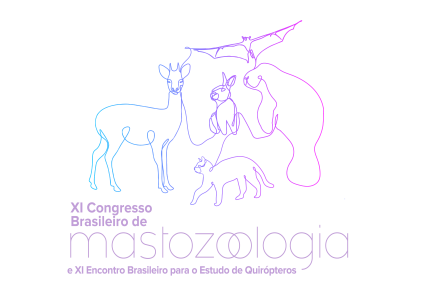Dados do Trabalho
Título:
SYNERGISTIC EFFECTS OF AMBIENT TEMPERATURE AND FOOD AVAILABILITY DO NOT ATTENUATE THE CONSTITUTIV AND INDUCED INNATE IMMUNE RESPONSE OF A FRUIT-EATING BAT (CAROLLIA PERSPICILLATA)
Resumo:
Resilience of mammals to anthropogenic climate and land-use changes is associated with the maintenance of adequate responses of several fitness-related traits such as, for example, those related to immune functions. The synergistic effects of decreased food availability (associated with land-use changes) and increased ambient temperature (Ta - associated with climate changes) can lead to immunosuppression and greater susceptibility to disease. To what extent the immune system of mammals can cope with such synergic changes is, thus, pivotal for their capacity to maintain viable populations in response to man-made changes in their habitats. In this study, we measured how selected physiological and behavioral components associated with the induced and constitutive components of innate immune system of Neotropical fruit-eating bat (Carollia perspicillata) respond to the synergistic effects of changes in Ta and food availability. We predicted that this species would be able to respond to these effects but that, due to the high costs and increased stress levels associated with the activation of the innate immune system, the synergistic interaction of high Ta and reduced food availability would result in attenuation of these immune responses. Therefore, physiological (fever, leukocytosis and stress level) and behavioral components (food intake) of the acute phase response (APR), and the bacterial killing ability of the plasma (BKA), were measure at different feeding (ad libitum diet or 50% food-deprived) and Ta conditions (27 and 32°C), before and after challenging immune system with lipopolysaccharide (LPS: 10 mg/kg LPS) or PBS (control group). Data were analyzed using general linear models. Before immune challenge, only food intake and skin temperature (Tskin) were affected by feeding restriction or ambient temperature, but the synergistic effect was not observed. Bats with ad libitum food access kept at 32°C showed decreased food intake, and bats kept under feeding restriction had lower Tskin. Contrary to our predictions, after immune challenge, decreased food intake was not attenuated by the synergic effects of Ta and food availability. However, only bats kept at 32°C had a lower mean food intake than bats kept at 27°C, indicating that Ta has a constant effect in decreasing food intake regardless of immune challenge. Similar results were observed for the BKA, synergistic effect was not observed, but BKA decrease as Ta increase, probably due to a stress-related heat shock. In fact, the neutrophil to lymphocyte ratio, used as proxy of stress increased after LPS injection, being higher in bats kept at 32°C, and synergistic effect was not observed. Leukocyte count did not change regardless of Ta, feed restriction or synergistic effect. Tskin increased after LPS injection, and this increase seems to be independent of Ta, food availability, and was not attenuated by synergistic effect. Apparently, physiological and behavioral responses of APR after immune challenge are not attenuated by synergistic effect of food restriction and increased Ta. In contrast, our results indicate that exposure to warm ambient temperatures declines the humoral ability to kill bacteria and increase the N/L ratio, as a result of heat stress.
Keywords: Chiroptera, Innate immune system, Food availability, Temperature
Financiamento:
This study was supported by a grant to A. P. C. N and L. G. H. M. from Fundação de Amparo à Pesquisa do Estado de São Paulo (FAPESP Visiting Research Program #2017‐17607‐ 6). A. P. C. N. was also was supported by a grant from Fundação de Amparo à Pesquisa do Estado de São Paulo (FAPESP, Grant #2014/16320-7) and L. G. H. M. by a grant from the PASPA‐DGAPA program of the Universidad Nacional Autónoma de México (#814-2018). M. F.V. was supported by a grant from the Coordenação de Aperfeiçoamento de Pessoal de Nível Superior Tecnológico (CAPES, Grant #88882.434214/2019-01).
Área
Outros
Autores
MATHEUS FERNANDES VIOLA, Luis Gerardo Herrera Montalvo, Ariovaldo Pereira Cruz Neto
